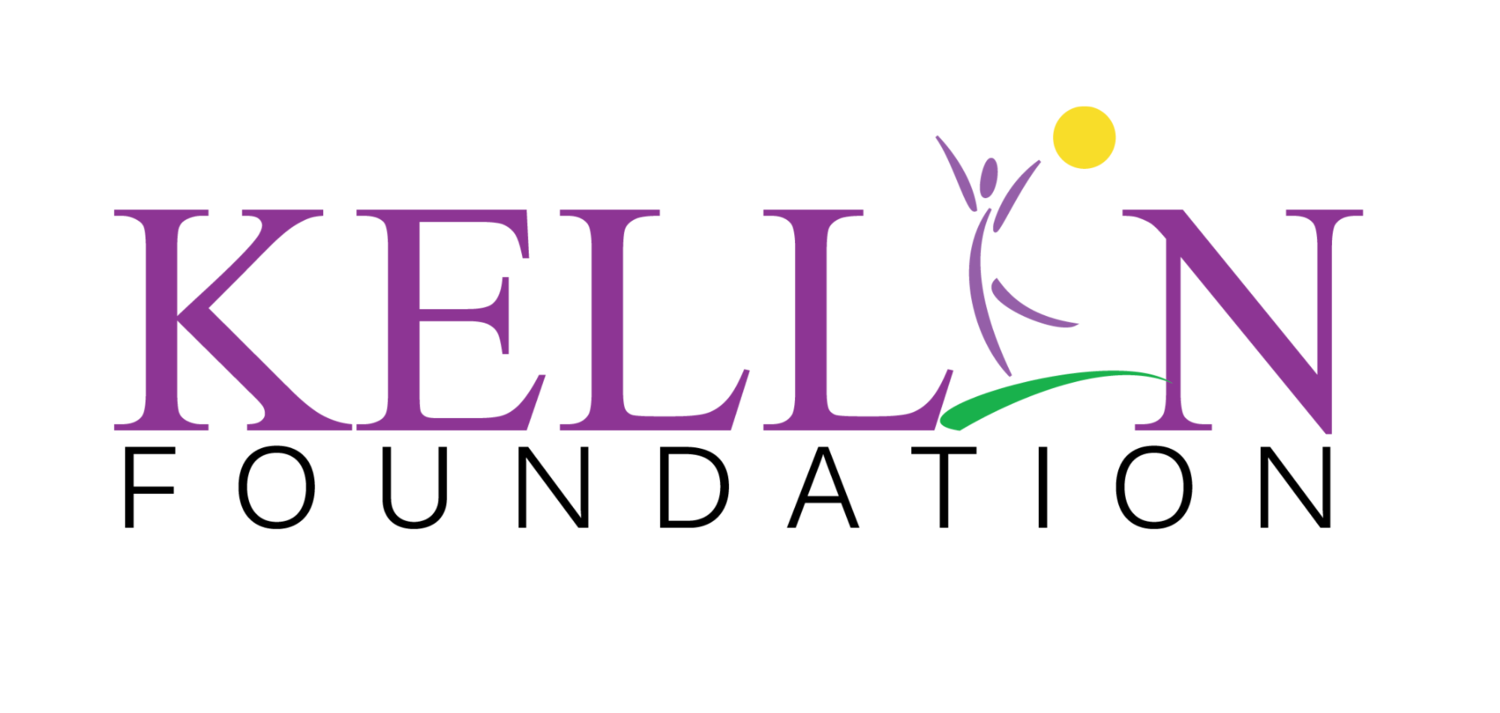Kellin Foundation Empowering Youth Through Peer Support
An individual peer support session with a youth peer support specialist can bring about meaningful improvements in an adolescent’s life, offering a unique and valuable form of assistance. During these sessions, teens experience a safe and supportive environment where they can express their thoughts and emotions freely. The peer support specialist provides emotional validation, helping teens understand that their feelings are valid and that they are not alone in facing challenges. This empathetic and understanding connection fosters trust, encouraging young individuals to open up more easily.
Navigating the challenges of adolescence can be a daunting task, as young individuals often encounter mental health or substance use challenges that require understanding and empathy. The Kellin Foundation has been making an impact with youth through its innovative Teens Gotta Talk after school group peer support program, and now has immediate openings for individual peer support appointments for youth ages 13 and up. Peer support can really make a positive difference in the life of a child!
The significance of individual youth peer support cannot be overstated. Peer support is not a replacement for therapy, but sessions with a peer support specialist can be a great addition to therapy and is beneficial on its own as well. A peer support specialist is someone who has experienced a mental health or substance use disorder and who has overcome challenges to lead a life of well-being.
An individual peer support session with a youth peer support specialist can bring about meaningful improvements in an adolescent’s life, offering a unique and valuable form of assistance. During these sessions, teens experience a safe and supportive environment where they can express their thoughts and emotions freely. The peer support specialist provides emotional validation, helping teens understand that their feelings are valid and that they are not alone in facing challenges. This empathetic and understanding connection fosters trust, encouraging young individuals to open up more easily.
Through the support of the peer specialist, adolescents gain access to practical coping strategies and tools through the sharing of mutual experiences. These techniques empower them to develop healthier ways of managing stress, anxiety, or other emotional difficulties. Additionally, the peer support specialist serves as a positive role model, inspiring teens to foster well-being and work towards their goals.
Peer support sessions also promote increased self-awareness as an individual gains insights into their own thoughts and behaviors. Understanding themselves better helps them make informed decisions and develop a stronger sense of identity. Together with the peer support specialist, youth can set realistic and achievable goals, related to mental health, personal growth, or other aspects of life. Regularly reviewing and celebrating progress enhances motivation and sense of accomplishment.
Engaging in peer support sessions can be a stress-relieving experience. Venting and discussing concerns with a caring specialist can alleviate emotional burdens and help youth feel lighter and more at ease. Furthermore, these sessions foster improved communication skills, as individuals learn effective ways to express themselves and engage with others.
The benefits of individual peer support go beyond the immediate session. The supportive relationship established with the peer support specialist can lead to ongoing support over time. Youth may feel comfortable seeking help or guidance from the specialist, providing a lasting source of support.
Peer support sessions with a peer support specialist offer adolescents a transformative experience. By providing a nurturing and understanding environment, along with valuable tools and strategies, these sessions empower youth to face challenges with greater resilience and develop into emotionally and mentally healthy individuals. The support and guidance received during these sessions can lay the foundation for a brighter and more fulfilling future.
Youth peer support is a vital component of promoting mental health and well-being among young people. The Kellin Foundation's youth peer support program provides them with the tools to cope with life's challenges and offers a safe haven for open discussions about mental health.
If you know a teen who could benefit from Kellin Foundation’s peer support program email us or call 336-429-5600 to set up an appointment to provide them with the tools they need to embark on a journey of emotional well-being and resilience.
The Transformative Impact of Dr. Kelly Graves and the Kellin Foundation: Empowering Trauma-Informed Justice and Health Policy in North Carolina
Under Dr. Kelly Graves's visionary leadership, the Kellin Foundation has been instrumental in driving positive change and making a tangible impact throughout North Carolina. With a steadfast commitment to trauma-informed practices, the foundation has been at the forefront of fostering resilience and healing for individuals and communities affected by trauma. Through innovative programs, educational initiatives, and community partnerships, the Kellin Foundation has been able to provide crucial support and resources to those in need. The foundation continues to create a ripple effect, empowering individuals and promoting a culture of understanding, compassion, and healing across the state. Through their comprehensive approach and unwavering dedication, the Kellin Foundation, under Dr. Graves's leadership is actively shaping a brighter future for North Carolina.
Dr. Kelly Graves, executive director of the Kellin Foundation, whose passion for trauma-informed practices and a dedication to improving the well-being of North Carolinians, has recently been recognized for her exceptional contributions in two significant initiatives.
North Carolina ACES-Informed Courts Initiative: Dr. Kelly Graves received the honor of being selected to participate in the North Carolina ACES-Informed Courts initiative commissioned by Chief Justice Paul Newby and led by District Attorney Benjamin David. This initiative aims to implement Adverse Childhood Experiences (ACES)-informed practices within the state's judicial system. On June 19, 2023, Dr. Graves took part in the New Judges Orientation Program organized by the Duke Bolch Institute. She had the opportunity to share invaluable insights, tips, and tools with newly appointed judges from across the state. By fostering a deeper understanding of trauma and resilience, Dr. Graves is helping to equip judges with the necessary tools to ensure fairness, empathy, and justice prevail in their courtrooms.
NC Institute of Medicine (NC IOM) Editorial Board: Dr. Graves also recently was selected as one of only six individuals across the state to join the esteemed NC Institute of Medicine (NC IOM) Editorial Board. The NC IOM plays a pivotal role in improving the health and well-being of North Carolinians by providing analysis on health issues, identifying evidence-based solutions, and informing health policy at both state and local levels. Dr. Graves' inclusion on the board further exemplifies her unwavering commitment to the betterment of the community and her expertise in shaping health policies for the benefit of all.
Under Dr. Kelly Graves's visionary leadership, the Kellin Foundation has been instrumental in driving positive change and making a tangible impact throughout North Carolina. With a steadfast commitment to trauma-informed practices, the foundation has been at the forefront of fostering resilience and healing for individuals and communities affected by trauma. Through innovative programs, educational initiatives, and community partnerships, the Kellin Foundation has been able to provide crucial support and resources to those in need. The foundation continues to create a ripple effect, empowering individuals and promoting a culture of understanding, compassion, and healing across the state. Through their comprehensive approach and unwavering dedication, the Kellin Foundation, under Dr. Graves's leadership is actively shaping a brighter future for North Carolina.
Prioritizing Minority Mental Health: Breaking Barriers and Fostering Well-being
In the realm of mental health, the experiences of minority communities have often been overlooked and underrepresented. The significance of minority mental health cannot be overstated. Individuals from racial, ethnic, and marginalized backgrounds face unique challenges that can have a profound impact on their psychological well-being. By shedding light on the barriers they encounter and advocating for inclusive and culturally competent mental health care, we can work towards a more equitable and supportive society.
In the realm of mental health, the experiences of minority communities have often been overlooked and underrepresented. The significance of minority mental health cannot be overstated. Individuals from racial, ethnic, and marginalized backgrounds face unique challenges that can have a profound impact on their psychological well-being. By shedding light on the barriers they encounter and advocating for inclusive and culturally competent mental health care, we can work towards a more equitable and supportive society.
The consequences of discrimination, racism, and other forms of marginalization on mental well-being cannot be ignored. Minority individuals often encounter stigma, cultural barriers, and limited access to appropriate care, resulting in disparities in mental health outcomes. The stress and psychological impact of navigating systemic inequalities can lead to increased levels of anxiety, depression, and trauma. Cultural stigmas and barriers surrounding mental health within minority communities pose additional challenges. Concerns about judgment, shame, and fear of being labeled as "crazy" or "weak" can discourage help-seeking, while cultural expectations of strength and resilience may inhibit expressing vulnerability.
The mental health of minority communities is of paramount importance. By recognizing and addressing the unique challenges they face, we can create a more inclusive and supportive mental health ecosystem. The consequences of discrimination, racism, and other forms of marginalization on mental well-being cannot be ignored. Minority individuals often encounter stigma, cultural barriers, and limited access to appropriate care, resulting in disparities in mental health outcomes.
Despite the difficulties, these communities exhibit a range of cultural strengths and resilience factors that contribute to their ability to overcome challenges. These include strong cultural values and identity, supportive social networks, collective strength and activism, cultural healing practices, spirituality and faith, adaptive coping mechanisms, and cultural pride. These factors serve as sources of resilience, promoting mental well-being and empowering individuals to navigate adversity in culturally meaningful ways. Recognizing and incorporating these strengths in mental health support is crucial for fostering resilience and supporting the overall well-being of minority communities.
To foster holistic well-being for all and to promote minority mental health and overall well-being, a multi-faceted approach is essential. Here are some key steps that can be taken:
Culturally Responsive Care: Mental health professionals should receive training in cultural competency to better understand and meet the diverse needs of minority individuals. This includes being aware of cultural differences, overcoming language barriers, and tailoring interventions accordingly.
Breaking Stigma: Efforts should be made to challenge cultural stigma surrounding mental health within minority communities. By normalizing discussions, sharing personal stories, and promoting mental health education, we can encourage help-seeking behavior and reduce the shame associated with mental health struggles.
Accessibility and Affordability: Improving access to mental health resources is crucial. This involves addressing structural barriers such as language access, expanding insurance coverage, and establishing community-based mental health programs in underserved areas.
Community Engagement: Building supportive communities is essential for minority mental health. Collaborating with community organizations, leaders, and individuals from diverse backgrounds can foster safe spaces, create support networks, and advocate for policy changes that address mental health disparities.
Research and Collaboration: Increasing research on minority mental health and collaborating with community organizations and institutions can help inform effective strategies, interventions, and policies. This knowledge can promote evidence-based practices that address the specific needs and challenges faced by minority communities.
The Kellin Foundation recognizes the real consequences of trauma, including race-based trauma and gender discrimination, on the lives of individuals. Our clinical work revolves around creating opportunities for healthy connections, supporting the healing of individuals and families, and breaking cycles of trauma that affect us all.
In our efforts to build community resilience, the Kellin Foundation is committed to undoing the damage caused by systemic discrimination in all its forms. We actively ensure the inclusion of traditionally marginalized populations, including people of color, LGBTQ+ community members, immigrants, refugees, and those who experience multiple forms of discrimination. By centering the needs and experiences of these communities, the foundation strives to address the mental health disparities they face.
Kellin Foundation’s dedication to equity is reflected in our equity roadmap. This roadmap serves as a guide for our journey toward centering racial equity and inclusion. It outlines our strategies, objectives, and measures to assess progress in dismantling systemic barriers and promoting mental health equity for all. By regularly evaluating our efforts, the Kellin Foundation demonstrates our commitment to accountability and continuous improvement.
Promoting equity and addressing minority mental health is a crucial step towards building a more just and compassionate society. The Kellin Foundation's commitment to inclusivity and our equity roadmap exemplify the efforts needed to create positive change. By acknowledging the challenges faced by minority communities, advocating for their well-being, and implementing strategies that prioritize culturally competent care, we can foster a mental health ecosystem that supports the holistic well-being of all individuals, regardless of their background. Together, we can break down barriers, reduce disparities, and work towards mental health equity for every member of society.
Enhancing Child-Parent Relationships: The Power of Kellin Foundation's PCIT Program
In today's fast-paced world, building strong and nurturing relationships between parents and children has become more important than ever. Recognizing this need, the Kellin Foundation has partnered with Harvard University's Baker Center for Children and Families to implement a Parent-Child Interaction Therapy (PCIT) program, one of only two practices in our region utilizing the method. PCIT is a highly effective approach that has gained immense popularity and strengthens familial bonds.
In today's fast-paced world, building strong and nurturing relationships between parents and children has become more important than ever. Recognizing this need, the Kellin Foundation has partnered with Harvard University's Baker Center for Children and Families to implement a Parent-Child Interaction Therapy (PCIT) program, one of only two practices in our region utilizing the method. PCIT is a highly effective approach that has gained immense popularity and strengthens familial bonds.
Understanding PCIT:
Parent-Child Interaction Therapy (PCIT) is an evidence-based treatment approach designed to enhance the quality of parent-child interactions and improve child behavior management skills. Developed by Dr. Sheila Eyberg in the 1970s, PCIT focuses on two essential components: Child-Directed Interaction (CDI) and Parent-Directed Interaction (PDI). Through a combination of play therapy and behavioral techniques that involve both parent and child participation, PCIT equips parents with the necessary tools to establish positive connections and effectively manage their child's behavior.
Parent-Child Interaction Therapy (PCIT) has been found to be particularly effective for children in the age range of 3 to 7 years old. This developmental stage is characterized by significant growth in social, emotional, and cognitive domains. During this period, children are actively exploring their environment, acquiring essential communication skills, and forming their understanding of relationships. PCIT's structured and play-based approach aligns well with the developmental needs of children in this age group, providing them with a safe and supportive environment to learn and practice new skills. By targeting specific behaviors and strengthening the parent-child bond, PCIT helps children navigate challenges, improve their social and emotional competence, and develop a solid foundation for healthy relationships in the future. While PCIT can benefit children of various ages, its focus on enhancing parent-child interactions and behavior management skills aligns particularly well with the needs of children between 3 and 7 years old.
Benefits of Kellin Foundation's PCIT Program:
1. Improved Parenting Skills: PCIT empowers parents with practical strategies to foster positive communication, reduce negative interactions, and effectively manage challenging behavior. The Kellin Foundation's program provides parents with personalized guidance and support, enabling them to develop crucial parenting skills that contribute to a nurturing environment.
2. Strengthened Parent-Child Bond: By focusing on positive reinforcement and building strong connections, PCIT strengthens the emotional bond between parents and children. The Kellin Foundation's therapists work closely with families, fostering a safe and supportive environment that enhances trust, empathy, and understanding between parent and child.
3. Enhanced Child Behavior: PCIT addresses behavioral issues by teaching parents effective behavior management techniques. By promoting consistency, clear communication, and appropriate discipline, the program assists parents in reshaping their child's behavior in a positive manner. Through PCIT, children learn essential social and emotional skills that contribute to their overall development.
4. Long-term Positive Outcomes: Research has consistently shown that PCIT leads to lasting improvements in parent-child relationships. The Kellin Foundation's PCIT program is built on evidence-based principles, ensuring that families receive the highest quality of care and support. By equipping parents with lifelong skills, the program creates a positive ripple effect that extends beyond therapy sessions.
The Kellin Foundation's PCIT program stands as a testament to the transformative power of strong parent-child relationships. By providing parents with effective tools to enhance their parenting skills and promote positive interactions, PCIT offers families a path towards long-lasting and meaningful connections. The Kellin Foundation's dedication to this program reinforces its commitment to improving the lives of children, strengthening families, and fostering resilience in our communities. If you're seeking to cultivate a more harmonious and fulfilling relationship with your child, the PCIT program offered by the Kellin Foundation may be the key to unlocking a brighter future for your family.
The Impact of Independence Day on Veterans' Mental Health: Insights from the Kellin Foundation
Independence Day, a day marked with festivities, fireworks, and national pride, holds profound significance for the United States. While the majority of Americans celebrate this day with joy and enthusiasm, it is essential to recognize that it can evoke complex emotions in veterans. For those who have served their country and witnessed the realities of war firsthand, the celebratory atmosphere can trigger various mental health challenges. We must seek to understand the paradox of celebration and the weight of loss and remembrance and raise awareness of the potential impact July 4th may have on our veterans.
Independence Day is synonymous with celebrations, parades, and firework displays across the nation. However, for many veterans, the festive nature of the holiday can serve as a stark contrast to their experiences in the military. The explosions and loud noises associated with fireworks can trigger distressing memories and flashbacks, reminiscent of combat situations. This paradox can lead to heightened anxiety, hypervigilance, and other symptoms of post-traumatic stress disorder (PTSD).
For veterans who have lost comrades or witnessed the sacrifices of their fellow service members, Independence Day can be a bittersweet reminder of the cost of freedom. The day may serve as a somber occasion to honor and remember those who made the ultimate sacrifice. It can evoke feelings of grief, survivor's guilt, and a profound sense of loss. It is important for society to acknowledge and respect these emotions while offering support and understanding.
While Independence Day brings communities together for collective celebrations, some veterans may find themselves feeling isolated or disconnected. They might struggle to relate to the merriment and camaraderie, as their military experiences have shaped their worldview differently. The sense of alienation can contribute to feelings of loneliness and exacerbate existing mental health conditions. Encouraging inclusive and supportive environments that honor veterans' unique perspectives can help alleviate this sense of isolation.
Veterans facing mental health challenges on Independence Day can benefit from various coping mechanisms and support systems. Encouraging open conversations about feelings and providing outlets for veterans to express themselves can be invaluable. Community organizations, veterans' groups, and mental health professionals can organize events or create safe spaces where veterans can connect with others who share similar experiences. Additionally, offering alternative celebrations or quieter activities that minimize triggers can be helpful.
In the quest to provide meaningful support to veterans during Independence Day and beyond, the Kellin Foundation has taken proactive steps and partnered with UCLA to implement the Military Independence Training Initiative (MITI). This specialized training has equipped our staff with valuable knowledge to foster a deep understanding of the unique challenges veterans face, enhance awareness of potential triggers, and promote effective strategies to minimize distress. By implementing MITI principles, Kellin Foundation plays an active role in supporting veterans' mental health, ensuring that Independence Day becomes an occasion that fosters unity, healing, and a deep appreciation for those who have served.
As a society, we must strive to raise awareness about the potential impact of Independence Day on veterans' mental health. This includes educating the public, event organizers, and communities about the challenges veterans may face during festivities. Sensitivity to the needs of veterans, such as giving advance notice of fireworks displays, promoting fireworks-free zones, and providing resources for mental health support, can go a long way in creating a more inclusive and understanding environment.
Independence Day holds great significance for veterans, symbolizing both their service to the nation and the complex emotions that arise from their experiences. By acknowledging the potential effects of this celebratory holiday on veterans' mental health and fostering supportive environments, we can honor their sacrifices while ensuring their well-being. Let us strive to create a society that not only celebrates freedom but also supports those who have defended it, fostering a sense of unity, compassion, and gratitude for our veterans on this important day.
Kellin Foundation Closed Week of July 4th
Kellin Foundation closed July 3-7th for the 2023 July 4th holiday.
In our fast-paced world, it's crucial to prioritize self-care and mental well-being. The Kellin Foundation understands the significance of self-care not only for those they serve but also for our hardworking staff. With this commitment in mind, the Kellin Foundation will be temporarily closed from July 3rd to July 7th, providing our dedicated team with a well-deserved break.
While the Kellin Foundation is closed, it's important to know alternative resources available to individuals seeking immediate assistance. In case of a mental health crisis or emergency, please reach out to 911 for immediate professional help. Additionally, there are hotlines and crisis helplines that operate 24/7, such as the National Suicide Prevention Lifeline at 1-800-273-TALK (8255) in the United States, which can provide support, guidance, and resources during difficult times.
After the holiday break, the Kellin Foundation will reopen on July 10th, ready to resume our work in supporting mental health and providing assistance to those in need.






